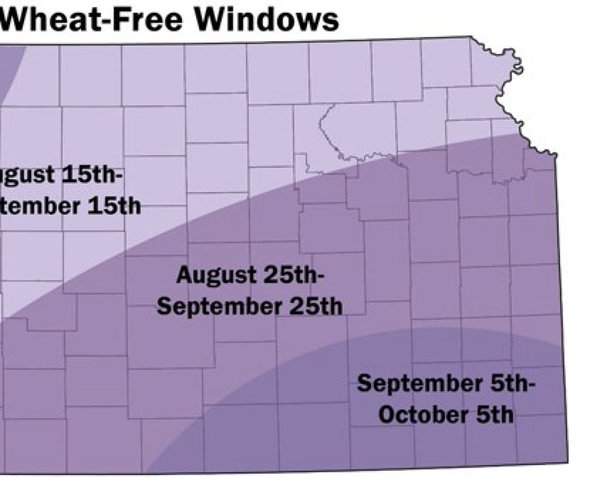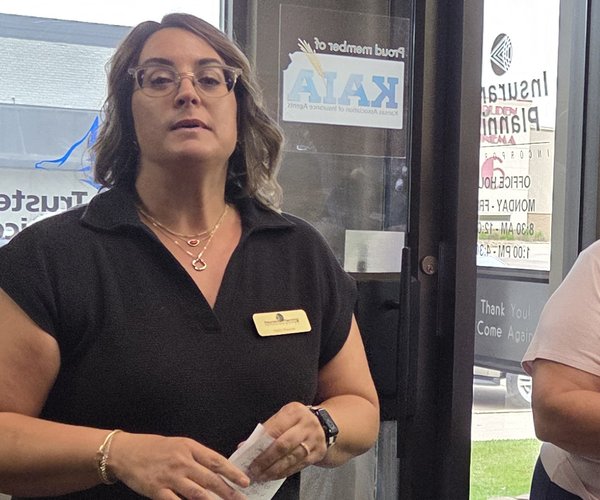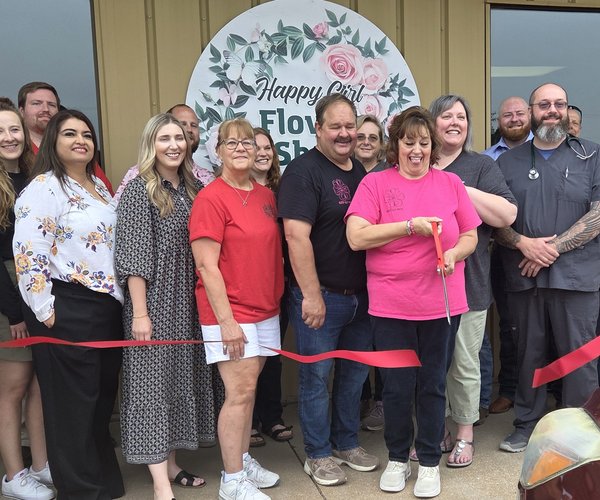As of Tuesday, July 15, the drought monitor report indicates a small bit of backsliding in conditions but not by much. Stafford, Pawnee, and Rice counties are still totally out of dry conditions. Baron County is still abnormally dry with the exception of a sliver in the extreme northern part of the county. The worst conditions are along the Nebraska border. The six-to ten-day outlook (July 22 to 26) indicates a 70 to 80% chance of likely above normal temperatures and normal to slightly below normal for precipitation. The eight to 14-day outlook (July 24 to 30) indicates a 60 to 70% chance of likely above normal for temperatures and 33 to 50% chance of leaning below normal for precipitation. Definitely not what the soybean crop needs or the sorghum. Early planted dryland corn and irrigated corn yields will suffer some but not as much as the later planted dryland corn.
If you have been paying attention to the recent wheat harvest, it’s almost impossible not to have heard of the significant yield losses caused by wheat streak mosaic virus. The disease is transmitted by the wheat curl mite moving from volunteer wheat to newly established fields and causes significant yield losses. We won’t go into how to control it, etc., today. However, it brings up a larger topic – being a good production neighbor.
What we do, whether producers or not, on our property and land affects others. We all prefer to think that it’s my land, house, or whatever and I can do what I want. It only affects my property. No one likes to be told what to do. It may seem obvious but that simply isn’t the case. As a society we have passed certain laws when what we do on our own property can negatively affect neighbors. Agriculture isn’t any different although there aren’t many laws in this area.
What a producer does on their operation impacts their neighbors either negatively or positively. And they impact not just their immediate neighbors. Poor wind and water erosion control impacts stream and reservoir water quality. Soil particles from Kansas pollute the Mississippi River and make their way to the gulf. Pesticides can impact surface and groundwater sources for towns and cities. Groundwater pollution from nitrates leads to municipalities having to invest millions of dollars in water treatment. Poor weed control in fields, waterways and right of ways helps spread weeds, some noxious, to adjacent fields. And a neighbor not controlling volunteer wheat can infect wheat fields for up to two miles.
There are rules and regulations designed to mitigate many of the problems. The NRCS has cost sharing programs and technical assistance to help. Institutions, like K-State Research and Extension, conduct research and education.
This isn’t to say most producers don’t care about their neighbors and the environment, they do. But they get busy. They try to do too much with too little help. Weather can interfere with what they know they should do. As a society, it would be beneficial to help provide them with the resources needed to minimize risks for their operation and for their neighbors.
Dr. Victor L. Martin is the agriculture instructor/coordinator for Barton Community College. He can be reached at 620-792-9207, ext. 207, or martinv@bartonccc.edu.





